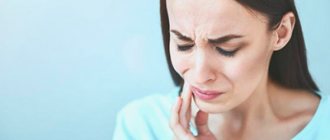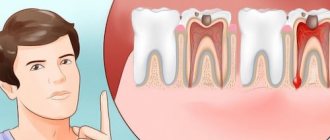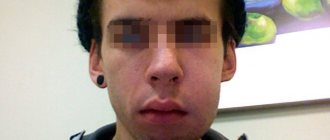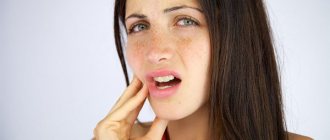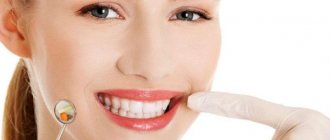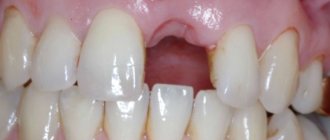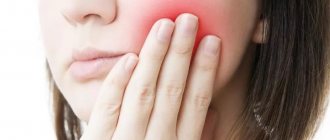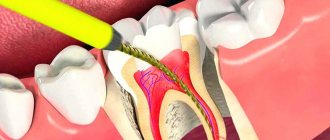Potent antibacterial drugs help fight serious diseases and advanced infections. Unfortunately, taking such medications often has a negative effect on all body systems. Antibiotics have many side effects, including:
- digestive disorders - constipation or diarrhea,
- bitterness or other unpleasant taste in the mouth,
- bloating and increased gas formation,
- nausea, abdominal pain, etc.
Negative reactions from the gastrointestinal tract are caused by the death of beneficial bacteria in the intestines. Strong antibiotics destroy not only infectious agents, but also beneficial microflora, so dysbiosis often develops after treatment. How to remove bitterness in the mouth after antibiotics and restore intestinal microflora? Find out what experts answer to these questions.
Why does the bitter taste appear?
A bitter taste in the mouth appears due to the reflux of the contents of the duodenum into the stomach or esophagus and oral cavity.
This feeling is troubling not only because of gastrointestinal diseases. The reason may be the presence of an infection in the body, exposure to medications, insufficient oral hygiene, during pregnancy, due to a lack of vitamins, an excess of fried heavy foods, alcohol, and coffee drinks. Gum disease is accompanied by a feeling of taste in the mouth due to the growth of bacterial flora. With dentures and poor oral hygiene, bacteria accumulate, multiply, and a bitter taste appears in the mouth.
When taking chemotherapy drugs, antibiotics, or antihistamines, bitterness in the mouth can be a side effect.
Dysgeusia is a taste disorder in which taste perception is altered. Dysgeusia can occur during pregnancy, in smokers, in older people, and in mental illness.
Ultrasound results
Ultrasound of the gallbladder dated January 12, 2019: the shape is irregular due to the presence of kinks in the projection of the neck and body, dimensions 63*25*25 mm. The walls are not thickened, uniform in density, single-layer. The hepatic choledochus is 3.4 mm (the norm is 6 mm), it is not traceable throughout its entire length, it is passable, the contents are heterogeneous, the walls are moderately compacted. The contours are smooth and clear. The cavity is heterogeneous due to hypoechoic fine suspension. The initial volume of the gallbladder is 18.81 cubic cm. After giving a trial breakfast at 30 minutes, the gallbladder decreased by 51%.
According to ultrasound and clinical data, it was possible to conclude that the patient has a congenital deformation of the gallbladder in the neck and body with signs of bile stagnation - dyskinesia of the hypotonic type ("flaccid" gallbladder) with the presence of hypoechoic fine bile (sludge).
How to get rid of bitterness in your mouth
Treatment depends on the diagnosis.
If these are diseases of the gastrointestinal tract (gallbladder, pancreas, liver), then the doctor prescribes drug therapy and dietary nutrition. Medicines used include choleretic drugs, antibiotics, antispasmodics for pain, prokinetics for synchronous functioning of the gallbladder and ducts, and sedatives. If bitterness in the mouth appears after eating fatty, fried, spicy foods, then it is necessary to adjust the diet and introduce healthy foods into the diet.
If you have GERD, you must follow some recommendations - do not lie down after eating for half an hour, do not bend over after eating, do not wear tight clothes that compress the stomach, sleep with the head of the bed raised.
Effect of antibiotics. Objectively
- satisfactory condition,
- sclera and visible mucous membranes of normal color,
- the abdomen participates in breathing, is painless on palpation in all parts, gall bladder symptoms are negative,
- liver at the edge of the costal arch.
The patient is suspected of having a violation of the contractile function of the gallbladder (dyskinesia). To clarify what dyskinesia is, an ultrasound examination of gallbladder function (cholecystokinetic test) with a test breakfast (sorbitol) was prescribed.
Diet
The diet should include soft, well-chopped food. Gentle cooking methods - steam, bake, boil, stew. Include puree soups and cream soup in your diet. Bread can be consumed dried, yesterday's bread made from first and second grade flour. Meat – chicken, turkey, lean parts of beef, lean fish. Eggs should be in the form of omelettes, steamed in the oven. Food should be warm, not cold or hot. If there is a symptom of bitterness in the mouth, it is necessary to exclude sausages, smoked foods, fatty, fried, canned, and pickled foods from the diet. It is completely necessary to exclude alcohol, spicy foods, coffee, chocolate, carbonated drinks, pork, and some legumes.
Diagnostics
The most common causes of a bitter taste in the mouth are gastrointestinal diseases, so the patient should consult a gastroenterologist. First, complaints and medical history are collected, and the connection between bitterness and eating habits or time of day is clarified. Next, special laboratory and instrumental studies are used, the most informative of which are:
- Sonography
. The ultrasound method is indicated for studying the state of the digestive tract, identifying inflammatory and destructive changes, and neoplasms. A targeted ultrasound of the liver and gallbladder is performed. To detail the condition of the liver parenchyma, elastometry is used - a modern non-invasive method for determining the degree of fibrosis. - Duodenal sounding
. To prove the connection of the bitter taste with biliary diseases, 5 portions of bile are taken sequentially. The specialist evaluates the amount and rate of bile entering the intestines naturally and with pharmacological stimulation. Next, a bacteriological examination is performed. - Endoscopic examination
. To diagnose diseases of the esophagus and gastroduodenal zone, endoscopy is prescribed. During endoscopy, attention is paid to the integrity of the mucous membrane, the presence of areas of inflammation or atrophy. The condition of the major duodenal papilla and the initial parts of the duodenum is checked and a biopsy is performed. - Stool analysis
. Many diseases that are characterized by a bitter taste in the mouth cause specific changes in the stool. In case of violations of the bile secretion function, a large number of fatty inclusions are found in the stool; in case of damage to the pancreas, the stool contains undigested fibers and large carbohydrate molecules. - Laboratory diagnostics
. Women must be tested for hCG and sex hormones to exclude or confirm pregnancy. In a biochemical blood test for cholecystitis, the levels of bilirubin and the enzyme alkaline phosphatase are increased. If viral causes of hepatitis are suspected, serological testing of markers is required. - Additional methods
. An examination by a dentist is necessary to detect carious cavities, chronic periodontitis and other pathologies that cause a feeling of bitterness in the mouth. To diagnose lesions of the biliary system, cholangiopancreatography is performed. Patients with a complicated medical history should be examined by a neurologist.
Indications for gallbladder extirpation
The operation, characterized by trauma, involves making incisions in the peritoneum in 4 places. This procedure is prescribed in rare cases, taking into account not only the high cost of its implementation, pain, discomfort for the patient, but also residual consequences.
These include the need for long-term medication and scars or scars remaining at the surgical site. Nevertheless, there are a number of indications, the detection of which indicates complete or partial dysfunction of the gallbladder or the possibility of potential complications. Among the situations in which cholecystectomy is prescribed, experts include:
Treatment of antibiotic-associated diarrhea
Diarrhea that develops while taking antibiotics requires adjustment of the treatment regimen. You should not stop taking medications on your own; you should consult your doctor. Typically, the course of antibacterial therapy is interrupted or the drug is replaced with an antibiotic of a different group.
Normalization of digestive processes, intestinal motility and stool consistency are tasks that require an integrated approach. There are three general principles that are important for all people suffering from diarrhea after taking antibiotics:
- Nutrition correction: it is important to follow a diet. The diet should include crackers and rice water. It is important to reduce the amount of carbohydrates consumed as much as possible, and also give up milk, dairy products, baked goods, fresh vegetables, berries and fruits; legumes, pasta.
- Compliance with the drinking regime: it is necessary to drink at least 2 liters of water per day to replenish fluid loss during watery stools.
- Symptomatic therapy: the pathological process can be stopped with the help of medications.
Due to the fact that many sources of natural probiotics and prebiotics are prohibited for diarrhea, one of the key principles of treatment is the prescription of medications containing these components. Strict dietary restrictions require the use of probiotics and prebiotics for antibiotic-associated diarrhea: it is important to restore normal intestinal microflora to prevent the proliferation of opportunistic microorganisms.
In most cases, medication correction is indispensable. Remember that only a doctor can prescribe medications.
There are several groups of drugs that can be recommended for antibiotic-associated diarrhea.
Sorbents
Infectious and inflammatory diseases are accompanied by intoxication of the body, and in the process of antibacterial therapy, decay products of pathogenic microflora accumulate. Therefore, the doctor may prescribe enterosorbents - products that literally absorb toxins and harmful substances and remove them from the body.
Probiotics and prebiotics
It is important to address the root cause of diarrhea and restore normal intestinal microflora after taking antibiotics. For this, probiotics are used - bifidobacteria, lactobacilli, as well as prebiotics - a nutrient substrate to stimulate the growth of one's own beneficial microflora. Synbiotics include both probiotics and prebiotics and are widely used in gastroenterological practice.
If there is a pronounced shift in the microbial balance, the doctor may recommend intestinal antiseptics or bacteriophages - they are designed to prevent the growth of opportunistic microflora and help restore the number of beneficial microorganisms.
Enzymes
Enzyme replacement therapy is not the mainstay of treatment for antibiotic poisoning. However, preparations based on digestive (pancreatic, gastric, intestinal) enzymes stimulate the digestion of food, normalize intestinal motility and peristalsis and participate in the restoration of normal microflora of the large intestine.
Symptomatic therapy
Diarrhea is often accompanied by painful symptoms: flatulence, nausea, cramping and abdominal pain. You can quickly alleviate the condition with the help of medications. They are unable to cope with the main problem, but will bring temporary relief. Report your symptoms to your doctor, and he will select one or more remedies to improve your well-being:
- for increased gas formation - defoamers (drugs based on simethicone) or herbal carminatives;
- analgesics or antispasmodics for pain;
- Oral rehydration solutions are products designed to replenish normal fluid volume and prevent dehydration.
If diarrhea is accompanied by elevated body temperature, the doctor will select an antipyretic drug.
General strengthening agents
Weakened by an infectious or inflammatory disease, as well as subsequent use of antibiotics, the body may require complex recovery. A specialist can prescribe immunomodulators, vitamin-mineral complexes and restorative drugs.
Restrictions in food during diarrhea can also cause hypovitaminosis and lack of minerals. During long-term antibiotic therapy, it is necessary to discuss preventive measures with your doctor in advance.
Antidiarrheal drugs
If you cannot cope with diarrhea, your doctor may prescribe drugs from the following groups:
- eubiotics - live bacteria that are designed to restore the balance of intestinal microflora and restore normal digestive function;
- synthetic drugs based on loperamide: bind to opioid receptors of the intestinal wall and inhibit the release of mediators that stimulate intestinal motility;
- herbal preparations based on tannins.
Sorbents also have an antidiarrheal effect. They are natural and synthetic. Enterosorbents, entering the intestines, absorb toxins and harmful substances, contribute to the formation of stools and their reduction. It is important to remember that at least two hours should pass between taking sorbents and other drugs.
For severe antibiotic-associated diarrhea, antibacterial agents targeting Clostridium difficile or another infectious agent may be appropriate.
The drug “Fitomucil Sorbent Forte” can be used as an adjunct to relieve diarrhea syndrome. It contains inulin, a prebiotic that promotes the growth of normal microflora, as well as 5 types of probiotic bacteria. In addition, the drug contains psyllium, a natural component that helps reduce diarrhea and relieve intoxication, since it turns into a gel and absorbs toxins. The triple effect (enterosorbing, detoxifying and restorative) distinguishes Fitomucil Sorbent Forte from other sorbents prescribed for AAD. Live bacteria populate the intestines and not only help relieve diarrhea, but also improve the condition of the microflora that has been damaged by taking antibiotics.
However, to restore microflora it is not enough to take one drug.
Only a doctor prescribes specific therapy. It is necessary to stop taking uncontrolled medications and agree with a specialist on medications for symptomatic therapy.
Prevention of diarrhea during antibiotic therapy
To prevent diarrhea while taking antibiotics, it is important to follow several recommendations:
- strictly adhere to the dosage and treatment regimen prescribed by the doctor;
- use probiotics recommended by a specialist;
- follow a diet to prevent gastrointestinal disorders;
- maintain optimal drinking regime;
- take medications that protect the lining of the stomach and the entire digestive tract. If you have chronic ailments, you must inform your doctor about them so that he can select an individual scheme for protecting the digestive system from the effects of antibiotics.
If it is necessary to take antibiotics, it is important to take into account the body's previous reactions to antibacterial therapy. Thus, in some patients, antibiotic-associated diarrhea develops in response to exposure to a particular group of drugs or a specific agent.
Hepatoprotective therapy
Considering all the risks to the liver, patients with severe Corona are necessarily prescribed hepatoprotectors. These are medications that increase the organ’s resistance to pathological influences and toxins, promote its speedy recovery, and enhance its neutralizing functions by increasing the activity of the liver system.
Hepatoprotectors can be of chemical, synthetic and natural origin. Depending on the composition, they can dilute and remove bile, exhibit antioxidant activity, and relieve inflammation.
Why does diarrhea occur after taking antibiotics?
The development of complications during antibacterial therapy in the form of diarrhea is associated with a decrease in beneficial microflora, which is involved in a complex of digestive processes:
- breakdown and absorption of nutrients from food;
- evacuation of the contents of the stomach and intestines;
- residual digestion of food;
- removal of toxins and metabolic products;
- secretion and absorption of water in the intestine;
- formation of feces, regulation of their excretion.
Even with standard antibacterial therapy, leading to a slight imbalance, side effects may occur in the form of disruption of intestinal function.
In addition, bacterial infections themselves can contribute to diarrhea, which is the basis for taking antibiotics. The waste products of pathogenic bacteria have a toxic effect, and stool liquefaction may be associated with an increase in body temperature. Antibiotics fight the underlying agent and root cause of the disease, and in many cases they are truly necessary. However, this group of medications can worsen the digestive system.
Literature:
- Complete reference book for infectious disease specialists / N.I. Zryachkin et al. - M.: Eksmo, 2004 (JSC Mozhaisk Printing Plant). – 990 s.
- RMJ. 2022, No. 9: Clinical recommendations and algorithms for practicing physicians. — 2022. — 80 p.
- COVID-19 and liver damage/ Ilchenko Lyudmila Yurievna, Nikitin I.G., Fedorov I.G./ 2022 / Journal “Archives of Internal Medicine”
The text was checked by medical experts: Head of the socio-psychological service of the Alkoklinik MC, psychiatrist-narcologist L.A. Serova.
CAN'T FIND THE ANSWER?
Consult a specialist
Or call: +7 (495) 798-30-80
Call! We work around the clock!
The mechanism of development of diarrhea after a course of antibiotics
Antibiotic-associated diarrhea (AAD) develops as a result of the death of both pathogenic bacteria and beneficial microorganisms. An imbalance of microflora is called dysbiosis. According to statistics, the source of such digestive disorders can be up to ⅕ of the types of antibiotics used in medical practice. Typically, this phenomenon occurs as a result of taking broad-spectrum drugs.
Typically, this type of diarrhea does not have other symptoms, unlike food poisoning. The main symptoms of antibiotic poisoning include watery or loose stools, and less commonly, cramping abdominal pain. Most often, the intestinal condition returns to normal after 2-3 days.
In very rare cases, antibacterial therapy can cause colonization of the mucous membranes by pathogenic microorganisms - Clostridium difficile and Salmonella. They cause severe infections with persistent diarrhea, which increases the risk of dehydration and can lead to serious health consequences.
Antibiotic-associated diarrhea can occur with long-term use of suitable doses of the drug, and not necessarily in tablet form - injections can also lead to this result. However, poisoning can also occur due to an overdose. Each antibiotic has a toxic effect on different organs, so the category of the drug is taken into account. Common symptoms of overdose include the following:
- high body temperature (up to 39–40 ˚C);
- diarrhea;
- vomit;
- muscle pain;
- pain in the right hypochondrium;
- changes in blood pressure;
- tachycardia or bradycardia;
- joint pain;
- dizziness, etc.
With toxic damage to the liver, the following symptoms may appear: yellowness of the skin and sclera, itching of the skin, bloating, etc. With kidney damage, the volume of urine decreases significantly, and a strong feeling of thirst occurs. Poisoning with aminoglycosides leads to the appearance of signs of toxic otitis: acute pain in the ears, decreased hearing acuity, a feeling of congestion, etc. All conditions associated with an overdose of antibiotics require immediate treatment of poisoning . It is important to call an ambulance as soon as possible.
Liver recovery after coronavirus infection
The organ is unique. It has the ability to self-heal. Even after a serious defeat, he can normalize his work if a person helps him with this. Basic requirements for the speedy restoration of liver structures:
- Eat a balanced diet. Refractory fats, spices, herbs, alcohol, offal, ice cream, and carbonated drinks are prohibited. A person who is recovering should eat porridge, vegetables, fruits, steamed and boiled meat, cottage cheese, vegetable soups, savory cookies, and a protein omelet. It is also important to drink plenty of clean water.
- Take hepatoprotectors prescribed by your doctor. It is unacceptable to use medications purchased at a pharmacy without medical advice or recommended by friends. This approach to treatment is ineffective and dangerous. The pharmaceutical market offers a wide range of geratoprotective medications. They all have their own side effects, dosages and indications. Only an experienced doctor can determine whether a particular patient needs a particular drug composition.
- Move more. If you no longer need to stay in bed, you should take walks in the fresh air more often. Activity contributes to the stable functioning of hepatobiliary structures.
- Don't overeat. This is the sin of many people who are forced to stay in a hospital for a long time. In order for all internal organs to function normally, it is important to eat four to five times a day in small portions.
- Follow doctor's orders. This is the main condition for a speedy recovery. If the doctor told you to take laboratory tests and undergo ultrasound diagnostics, then that’s what you need to do. By ignoring the doctor's recommendations, a person makes things worse for himself.
If you are sick with coronavirus, be sure to take care of your liver health. Don't ignore the symptoms of inflammation. Then, after discharge from the hospital, you will not have to take hepatoprotectors for a long time.
Content:
- Corona is always a risk
- Why does the liver suffer?
- Impact of COVID-19 on the liver
- Effect of Covid-19 therapy on the liver
- Hepatoprotective therapy
- Liver recovery after coronavirus infection
Many patients who have suffered from Covid-19 ask the doctor how to restore the liver after the disease. Liver pathologies indeed often develop due to a progressive viral infection. Their symptoms cannot be ignored, since it is not known whether the organ will be able to organize its work on its own.
It is much wiser to resort to methods that promote the renewal of liver cells and eliminate the local inflammatory process. In this article we will tell you how COVID-19 affects the body’s main “filter” and how to treat the liver after coronavirus.
Why does the liver suffer?
Approximately every second person undergoing treatment for COVID-19 in a hospital has elevated levels of liver enzymes. Doctors often identify both laboratory and clinical signs of dysfunction of the hepatobiliary system. "Crown" is capable of striking through three main mechanisms:
- Negative impact of the virus. The bile ducts and liver contain special type 2 angiotensin-converting enzymes. They are the main target of COVID-19.
- Excessive immune response. Sometimes a person’s immune system reacts too violently to a viral invasion. It happens that his response turns out to be more dangerous than the symptoms provoked by the disease itself. With an immunological failure, many internal organs begin to function incorrectly. Complications do not bypass the liver.
- Use of hepatotoxic drugs. In case of severe corona, the patient is prescribed antibiotics, antiviral, anti-inflammatory and drugs of other groups. Many of them turn out to be toxic to the organ.
Treatment of bitterness with folk remedies
Herbal medicine is appropriate in complex treatment under the supervision of a specialist. Chamomile infusion, flax seed jelly, and corn silk decoction will help get rid of such an unpleasant symptom. Therapy with freshly squeezed juices has proven itself well. For this purpose, potato is used, which activates the intestines and eliminates heartburn, carrot, beetroot, which is effective for diseases of the biliary tract, and cucumber. Juices have a general strengthening effect, help cleanse the organs of toxins and normalize digestion processes.

